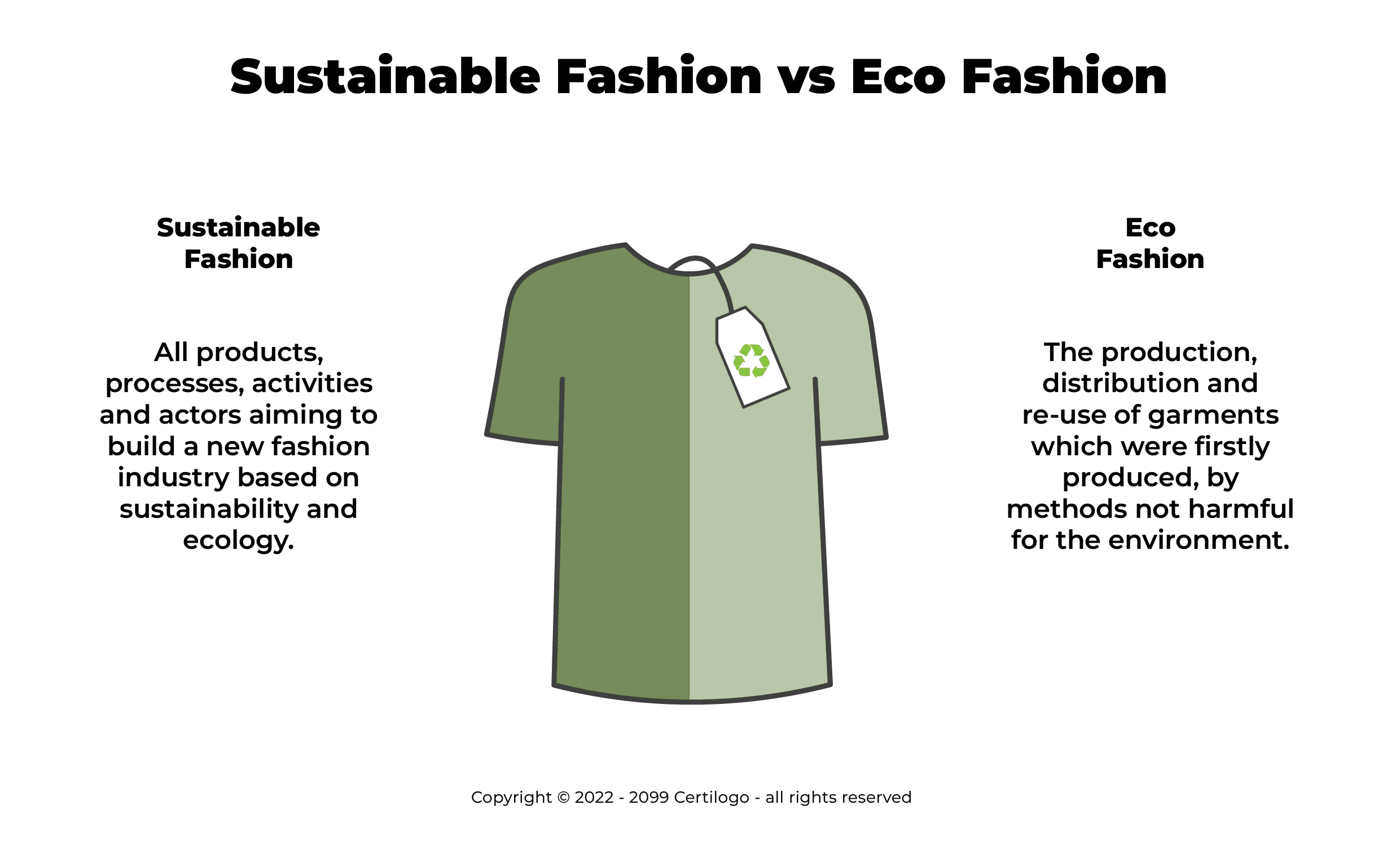Cape Town Sustainable Fashion Week: Highlighting Environment-friendly Innovations
Cape Town Sustainable Fashion Week: Highlighting Environment-friendly Innovations
Blog Article
Stay Ahead of the Curve by Discovering Cutting-edge Fashion Trends
In a market as vibrant as style, remaining ahead entails greater than simply complying with existing fads-- it demands an expedition of technology. Smart fabrics, for circumstances, are changing garments into practical work of arts, while 3D printing is transforming layout procedures with its customizable, waste-reducing capacities. As sustainability becomes a keystone, innovations like environmentally friendly materials and round fashion methods are improving environmental responsibility - Cape Town Sustainable Fashion. In addition, the merging of technology and style heralds a brand-new age of customer engagement. Just how, after that, can these arising trends redefine the future of fashion, and what ramifications do they hold for brands looking for to flourish in this advancing landscape?

Welcoming Smart Textiles
Over the last few years, the fashion sector has actually witnessed a transformative shift with the assimilation of smart fabrics, an advanced development that mixes technology with fabric. This evolution represents not just a combination of appearances and performance yet additionally a considerable leap in the direction of sustainability and personalization in vogue. Smart textiles, also referred to as e-textiles, embed sophisticated electronic devices such as sensors and conductive strings within the fabric, allowing garments to connect with the atmosphere or the wearer.
These fabrics are developed to keep track of physical specifications, such as heart price or body temperature level, giving real-time wellness analytics. Past health applications, wise fabrics are additionally being used for adaptive garments, which can change shade or pattern in response to ecological stimulations, therefore offering a dynamic fashion experience.
In addition, the advancement of energy-harvesting fabrics that produce power from motion or sunshine is leading the way for self-sufficient wearable innovation. This advancement is appealing to ecologically conscious consumers and designers aiming to decrease the environmental footprint of fashion. As study and growth in this field development, clever fabrics are anticipated to end up being increasingly common, reshaping the landscape of modern-day fashion with their multifunctional capabilities.
The Surge of 3D Printing
Reinventing the manufacturing landscape, 3D printing has actually arised as a game-changer in the garment industry. This cutting-edge modern technology has allowed developers to push the borders of imagination, creating elaborate and tailored garments that were previously unbelievable. By leveraging electronic style and additive production, 3D printing promotes the development of complex geometries and patterns, enabling designers to experiment with new structures and structures.
A remarkable advantage of 3D printing in vogue is its capability to produce on-demand, decreasing waste and decreasing stock needs. This effectiveness not just maximizes manufacturing processes however also permits fast prototyping, making it possible for designers to bring their visions to life in a much shorter duration. Moreover, 3D printing supports personalization to a level unmatched by standard methods, offering unique designs and individualized fits tailored to private customer choices.
The increase of 3D printing has likewise equalized style, making it easily accessible to arising developers who can currently fabricate high-grade pieces without significant monetary investment in typical production framework. As technology proceeds to advance, the fashion industry is positioned to harness the full possibility of 3D printing, discovering brand-new materials and techniques that will certainly redefine exactly how style is conceived and produced.
Sustainable Fashion Developments
As the apparel industry grapples with the pressing requirement for ecological duty, lasting style technologies have actually emerged at the forefront of transformative modification. The growing recognition of ecological effect has fueled a shift in the direction of even more eco-conscious practices and materials. Brands and developers are currently focusing on sustainability, integrating techniques that minimize waste and lower carbon footprints.
One see significant growth is the rise of round style, which stresses recycling and upcycling to prolong the lifecycle of garments. This technique not just decreases waste but likewise encourages consumers to take on an extra conscious method to clothing usage.
One more breakthrough hinges on the fostering of ingenious dyeing strategies that utilize natural dyes or waterless processes, therefore lowering the large amounts of water and chemicals commonly made use of in fabric dyeing. In addition, innovations in biotechnology have actually brought about the production of lab-grown natural leather and textiles, using environmentally friendly and cruelty-free alternatives to traditional products. Via these pioneering initiatives, the garment industry is making purposeful strides towards a much more sustainable future.

Tech-Integrated Apparel
Tech-integrated clothing represents a groundbreaking blend of fashion and modern technology, improving how people connect with their clothes. This ingenious domain name is noted by the addition of smart fabrics and ingrained electronic components, improving both capability and visual charm. From health and fitness trackers embedded in sports apparel to warmed jackets regulated via mobile phone apps, tech-integrated clothing supplies customers unmatched benefit and versatility.
Pioneering brands are driving this trend, concentrating on developing garments that reply to environmental stimulations or user commands. As an example, some garments can change color or pattern in reaction to temperature level shifts, while others incorporate biometric sensors to keep an eye on wellness metrics like heart price or stress levels. The smooth assimilation of innovation right into textiles additionally prolongs to ecological sustainability, with efforts to establish self-cleaning textiles or garments that adapt to weather, therefore lessening the demand for numerous layers.
Moreover, the development of wearable technology is not just limited basics to apparel but extends to devices like watches and glasses, more widening the range of tech-integrated fashion. As the market proceeds to introduce, the potential for personalization and customization in clothing expands, using customers distinct, tech-enhanced fashion experiences that accommodate their specific demands and choices.
Future of Virtual Fashion
In current years, the future of online fashion has actually arised as a transformative pressure within the sector, leveraging advancements in electronic innovation to redefine exactly how style is produced, experienced, and taken in. By integrating augmented truth (AR), digital reality (VIRTUAL REALITY), and 3D style devices, designers can currently craft immersive and interactive experiences that transcend conventional fashion boundaries. Virtual style permits the creation of garments that exist exclusively in electronic atmospheres, providing limitless opportunities for advancement without the constraints of physical manufacturing.
This digital shift not only presents possibilities for creative expression but additionally addresses sustainability concerns fundamental in traditional style methods. Cape Town Sustainable Fashion. By getting rid of the requirement for physical resources, virtual style lowers waste and decreases carbon impacts. Moreover, the increase of digital style straightens with the enhancing customer need for distinct and customized experiences, as online garments can be tailored and customized to specific preferences easily

Final Thought
The fashion business's future depend on the assimilation of ingenious innovations and sustainable methods - Cape Town Sustainable Fashion. Smart textiles and tech-integrated clothing are boosting performance, while 3D printing provides opportunities for customization and waste reduction. Lasting fashion, via round strategies and environmentally friendly materials, shows a dedication to ecological stewardship. In addition, digital fashion is positioned to redefine customer communications. Adapting to these trends is necessary for brands looking for to continue to be affordable and pertinent in this quickly evolving landscape.
In current years, the style market has actually observed a transformative change with the integration of wise fabrics, a sophisticated advancement that blends innovation with fabric.As the style sector grapples with the pushing demand for ecological pop over to this web-site obligation, sustainable fashion advancements have actually emerged at the forefront of transformative change.In recent years, the future of digital style has actually arised as a transformative pressure within the market, leveraging innovations in electronic technology to redefine how style is developed, experienced, and consumed. The rise of online style lines up with the raising consumer demand for personalized and special experiences, as digital garments can be personalized and tailored to private choices with simplicity.
The fashion industry's future lies in the integration of cutting-edge modern technologies and lasting practices.
Report this page